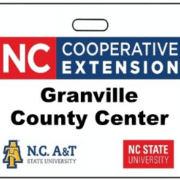COVID-19 Cases Continue To Rise In Vance, Granville
The Granville-Vance Health District reported Wednesday almost 400 new cases of COVID-19 in the past seven days across the two counties.
There have been 194 new cases in Vance County, and 202 new cases in Granville County, according to the report. Those numbers represent a 15.4 percent positivity rate in Vance and a 7.1 percent positivity rate in Granville.
GVPH Director Lisa Harrison noted, however, that those numbers likely will rise. “Lots of tests and lab entries are being made and transferred this week and we know these numbers will go up a significant amount in short order,” the report stated.
“The numbers reported today (Wednesday) from the state system above do not yet reflect the cases our team entered today which exceed another 200 cases reported to us,” Harrison said in a footnote included in the report.
All data, as well as outbreaks and clusters, are reported through the NC Electronic Disease Surveillance System and are available for review on the state’s data dashboard here: https://covid19.ncdhhs.gov/.
According to the CDC COVID Data Tracker, the numbers reported by the state mean that both counties are considered in the “high community transmission” category.
To date, there have been 7,665 cases of COVID-19 in Vance and 8,901 cases in Granville County for a total of 16,566 across the health district.
Deaths as a result of COVID-19 are 104 in Vance and 107 in Granville, for a total of 211 deaths across the health district.
For those who may want to calculate percentages, the total population of Vance County is 44,535 and 60,443 for Granville County.
Visit CDC Data Tracker by County and the NCDHHS COVID-19 Dashboard find the most recent information about COVID-19. Relevant graphs from these dashboards are available on our website at https://gvph.org/covid-19_dashboard/
In Vance County:
- 63 percent of those over the age of 5 have received at least one dose of their COVID-19 vaccine – 58 percent are fully vaccinated
- 14 percent of those ages 5-11 have received at least one dose and 8 percent are fully vaccinated
- 46 percent of those ages 12-17 have received at least one dose and 40 percent are fully vaccinated
In Granville County:
- 67 percent over the age of 5 have received at least one dose of their COVID-19 vaccine and 63 percent are fully vaccinated
- 16 percent of those ages 5-11 years have received at least one dose and 10 percent are fully vaccinated
- 44 percent of those ages 12-17 have received at least one dose and 40 percent are fully vaccinated
GVPH has administered 35,338 vaccines – 18,248 first doses and 17,090 second doses, an increase of 52 from last week’s numbers of 35,286 total vaccines, including 18,219 first doses and 17,067 second doses.









